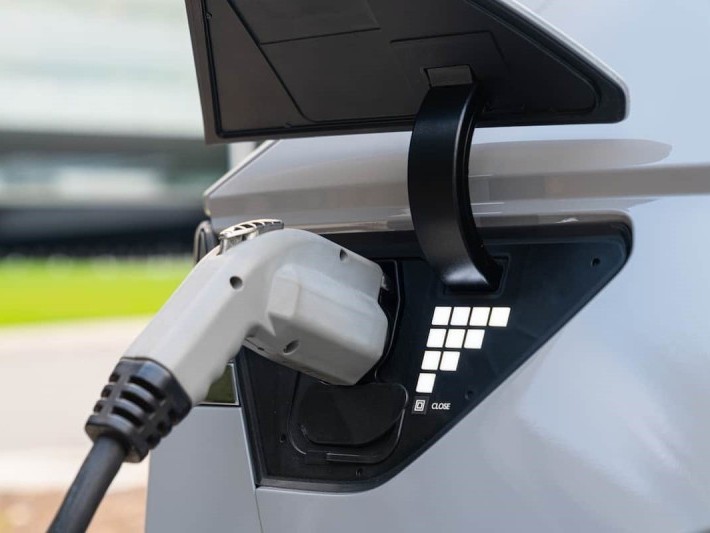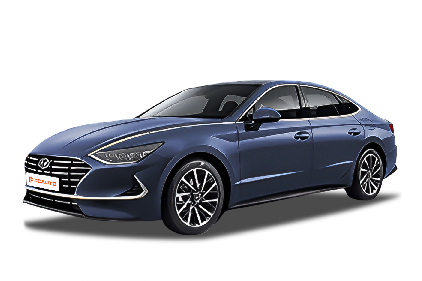Q
What engine does a 2017 Hyundai Sonata Sport have?
The 2017 Hyundai Sonata Sport is powered by a 2.4-liter Theta II GDI naturally aspirated four-cylinder engine, cranking out 185 horsepower and 178 lb-ft of peak torque. It's mated to a 6-speed automatic transmission, delivering a smooth driving experience and decent fuel economy. This engine features gasoline direct injection (GDI) technology, which enables more efficient fuel combustion—boosting power output while cutting emissions—making it a solid fit for both daily commutes and long highway drives. If you're craving more performance, the same-year Sonata lineup does offer a 2.0-liter turbocharged engine option, but the Sport trim comes standard with the 2.4-liter naturally aspirated unit. Maintenance-wise, this engine is pretty low-maintenance too; regular oil changes and routine servicing are all it takes to keep it running strong. Parts are relatively easy to source in local markets, and repair costs are reasonable. Hyundai's engine tech has come a long way in recent years, and the Theta II series has built a solid reputation for reliability and durability—perfect for owners who prioritize practicality and economy.
Special Disclaimer: This content is published by users and does not represent the views or position of PCauto.
Related Q&A
Q
Why is my 2017 Hyundai Sonata leaking oil?
The 2017 Hyundai Sonata has been reported to have oil leak issues, typically caused by several common factors. First off, the oil pan gasket may age or fail to seal properly; prolonged exposure to high temperatures and engine vibrations can cause it to harden and crack. Secondly, improper installation of the oil filter or a deformed sealing ring can lead to leaks, which often happens if the oil change procedure isn't followed correctly. The valve cover gasket is another frequent culprit, especially as the rubber material tends to deteriorate in higher-mileage vehicles. Additionally, worn front or rear crankshaft seals can also result in oil seepage, a problem that's more likely to occur once the car hits 80,000 kilometers or more. It's advisable to have the leak location inspected promptly—ignoring it for too long could lead to insufficient engine lubrication or even severe damage. For Sonatas over 5 years old, regularly checking for oil stains on the undercarriage and monitoring the dipstick level is crucial. During routine maintenance, you can ask the technician to pay special attention to these leak-prone areas. Using genuine OEM parts will help ensure better sealing performance. If you do find an oil leak, get it repaired as soon as possible to prevent a minor issue from turning into a major breakdown. Also, make sure to choose a reputable repair shop to guarantee proper installation when replacing gaskets or seals.
Q
What are the safety recalls on a 2017 Hyundai?
In 2017, Hyundai conducted recalls in some markets due to safety concerns, primarily involving risks of engine compartment fires, potential short circuits in the Anti-lock Braking System (ABS) module circuitry, and software issues with the airbag control unit. For the engine-related hidden danger, the recall involved replacing engine wiring harnesses or updating ECU software to prevent potential short circuits. As for the ABS module problem, it required inspecting and replacing defective hydraulic electronic control units. Regarding airbags, some vehicles needed control software updates to ensure proper airbag deployment during a collision. For vehicle owners, regularly checking recall status using the VIN on the brand's official website is crucial. If a recall applies, promptly contact an authorized service center for free repairs. It's important to note that vehicle recalls reflect manufacturers taking responsibility for their products and aren't necessarily a definitive sign of quality flaws; many issues can be resolved through preventive maintenance. It's advisable for owners to develop a habit of regular inspections and maintenance, and stay informed about technical service bulletins released by the brand. Such information is typically available through dealerships or official apps to ensure the vehicle always meets the latest safety standards.
Q
What is the most common problem with a 2017 Hyundai Elantra?
The most common issue with the 2017 Hyundai Elantra is jerky shifting or abnormal noises from the transmission, especially in models equipped with the dual-clutch gearbox. These problems typically occur during low-speed gear changes and may be related to software calibration of the transmission control module or clutch disc wear. Regular maintenance and updating the transmission program can effectively alleviate these issues. Additionally, some owners have reported a slight rattling sound from the steering system at low speeds, which is likely due to the steering column universal joint or dust boot needing lubrication—this can be fixed by inspecting and applying specialized grease. While the car's 1.6L Gamma engine is fairly reliable, it's recommended to check the timing chain tension every 50,000 kilometers to prevent ignition timing deviations caused by wear. In terms of electronics, occasional poor contact with the window regulators can occur, which can be resolved by cleaning the contacts or replacing the switch module. It's worth noting that the Elantra's suspension is tuned on the stiffer side; over time, bushing aging can make chassis noise more noticeable, but replacing the original rubber components can restore quietness. For used car buyers, it's advisable to focus on inspecting the aforementioned areas and verify whether the maintenance records include regular transmission fluid and spark plug replacements—these details can significantly reduce the probability of future repairs.
Q
What are the recalls on a 2017 Hyundai?
In 2017, Hyundai issued recall notices in some markets due to safety-related issues, including risks of engine compartment fires, potential short circuits in the Anti-lock Braking System (ABS) module circuitry, and software malfunctions in the airbag control unit. The engine-related recall involved specific batches of Theta II GDI engines, which could experience premature wear of connecting rod bearings due to manufacturing residues. The manufacturer offered free inspections and engine replacement services. The ABS module problem could lead to electrical short circuits and even fires; after the recall, technicians would install a relay kit. For the airbags, the control unit software needed to be updated to ensure proper deployment during a collision. These recall actions demonstrate the manufacturer's emphasis on safety issues. It is recommended that car owners check the specific recall status on the official website using their VIN. Completing the recall repairs on time not only eliminates safety hazards but also helps maintain the vehicle's residual value. If relevant warning lights appear on the dashboard, owners should contact an authorized service center promptly for inspection. Hyundai typically provides free repairs for recall items and, in some cases, may offer compensation for replacement transportation.
Q
What is the safety rating of the 2017 Hyundai Sonata?
The 2017 Hyundai Sonata excels in safety performance, earning the Insurance Institute for Highway Safety (IIHS) "Top Safety Pick+" award, the highest safety rating. This achievement is largely due to its robust body structure, comprehensive safety features, and impressive crash test results. The model comes standard with essential safety equipment such as six airbags, electronic stability control, and anti-lock braking system. Meanwhile, higher trim levels offer advanced driver assistance systems including blind-spot monitoring, lane-keeping assist, and automatic emergency braking, further enhancing driving safety. Notably, the Sonata performed exceptionally well in the small overlap front crash test, which is crucial for protecting the driver in offset collisions. Beyond active and passive safety features, the Sonata also utilizes a body frame constructed with high-strength steel, which effectively absorbs and distributes impact forces in the event of a collision. For safety-conscious consumers, these safety attributes are certainly worth considering.
Q
What are the different types of Hyundai Sonatas 2017?
The 2017 Hyundai Sonata basically comes in four trims: the base model with a 2.0-liter MPi naturally aspirated engine, the mid-level 2.0-liter Nu MPi, the high-end 2.4-liter GDi, and the hybrid version. The base trim gets that 2.0L MPi engine, pushing out 152 horsepower—perfect for daily commuting. The mid-level trim also uses the 2.0L engine but steps up the features, like adding smart key access and a touchscreen display. The top-tier 2.4L GDi trim cranks out 188 horsepower for more oomph, plus it comes with leather seats and a premium sound system. Then there's the hybrid, which pairs a 2.0L engine with an electric motor, focusing on fuel efficiency—great for eco-conscious buyers. All 2017 Sonatas come standard with a six-speed automatic transmission, and some higher trims even offer drive mode selection, including Normal, Eco, and Sport. Styling-wise, it uses the Fluidic Sculpture 2.0 design language, while the interior balances practicality with tech, like the standard 8-inch touchscreen that supports Apple CarPlay and Android Auto for easy smartphone integration. Safety isn't skimped on either, with features like lane keep assist and blind spot monitoring. Overall, the 2017 Sonata offers a solid range of choices across trims, catering to everyone from budget-focused commuters to those wanting a bit more performance.
Q
Does the 2017 Hyundai Sonata have a turbo?
The 2017 Hyundai Sonata did offer a turbocharged engine option on select trims, specifically the 1.6-liter Gamma T-GDI four-cylinder turbo engine. It cranked out 180 horsepower and 265 Nm of peak torque, paired with a 7-speed dual-clutch transmission. This powertrain aimed to strike a balance between fuel efficiency and performance. But it's important to note that not all 2017 Sonatas came standard with a turbo; the base model still used a 2.4-liter naturally aspirated engine (185 horsepower), and higher trims even had a 2.0-liter naturally aspirated option available. Turbo tech boosts combustion efficiency by compressing intake air, making it a solid pick for drivers who want snappy acceleration, while naturally aspirated engines are known for their smoothness and lower maintenance costs. Back then, this car had a variety of configurations in the local market. It's best to check the vehicle's VIN plate or original owner's manual to confirm the exact engine type. If you're looking at a used one, ask the seller for complete service records to verify the powertrain's condition.
Q
What is the 2017 Hyundai Sonata lawsuit?
The 2017 Hyundai Sonata was involved in lawsuits primarily related to its Theta II GDI engine, which had complaints of potential sudden stalling or fire risks. After an investigation by the U.S. National Highway Traffic Safety Administration, Hyundai launched a massive recall in North America covering certain 2013-2017 models equipped with this engine, including the Sonata. Recall measures included engine inspections, software updates, and component replacements if necessary, addressing the potential safety hazard caused by premature wear of connecting rod bearings. While this incident mainly affected the North American market, as a global model, owners should still pay attention to maintenance notices released by local dealers. Such cases highlight the importance of regular vehicle maintenance for consumers, especially for engines with turbocharging and direct injection technologies, which are more sensitive to oil quality and replacement intervals. Promptly following up on manufacturer technical updates can effectively reduce the risk of malfunctions. If you notice abnormal warning lights or unstable power output from your vehicle, it is advisable to contact an authorized service center immediately for inspection.
Q
Is a 2017 Hyundai Sonata good on gas?
The 2017 Hyundai Sonata holds its own when it comes to fuel economy. Your actual mileage will depend on the engine and how you drive, but the 2.4L four-cylinder model gets around 9.8 L/100km in the city and 6.9 L/100km on the highway. The 1.6L turbo version is more fuel-efficient, clocking in at roughly 8.7 L/100km city and 6.2 L/100km highway. All in all, it's a solid mid-pack performer in its class, great for daily commutes and longer road trips. If fuel costs are a big concern for you, the hybrid variant is worth a look—it'll cut down on gas even more. Hyundai's engine tech has really stepped up in recent years, both in efficiency and reliability. Sticking to regular maintenance and keeping good driving habits will also help keep those fuel costs in check. And if you're shopping used, make sure to check the service records to ensure the engine and transmission are in top shape—that way you'll get the best possible fuel economy out of it.
Q
Is there a recall on 2017 Hyundai Sonata engines?
Yes, the 2017 Hyundai Sonata was indeed part of an engine recall, primarily targeting potential manufacturing defects in Theta II GDI 2.4L and 2.0T turbocharged engines. These issues include bearing wear that could lead to stalling or fire risks, affecting vehicles globally including some Southeast Asian markets. Owners are advised to check their specific recall status by entering their VIN on Hyundai's official website or contact local authorized dealers directly to confirm if their vehicle is included. If necessary, core engine components can be replaced free of charge. It's worth noting that Hyundai has taken a more proactive recall approach regarding engine issues in recent years, with similar recalls affecting some models from 2013 to 2019, reflecting the manufacturer's value for safety responsibility. During daily driving, if you notice abnormal engine noises, warning lights, or loss of power, contact after-sales service immediately for inspection. You can also ask technicians to focus on checking critical components like connecting rod bearings during regular maintenance. While recall events may cause concern, Hyundai's extended warranty policies often cover related repair costs, and maintaining complete brand after-sales records is important for safeguarding future rights and interests.
Latest Q&A
Q
How much should I pay for a 2021 Toyota Corolla?
The used car prices for the 2021 Toyota Corolla typically range from RM70,000 to RM100,000, depending on the vehicle's condition, mileage, trim level, and warranty status. The high-spec GR-S sports version or hybrid models might be close to or even exceed RM100,000, while base models or those with higher mileage are more affordable. When buying, it's advisable to prioritize UMW Toyota Certified Pre-Owned vehicles. These cars undergo official inspections and come with extended warranties. Although they cost 5% to 10% more than those from private sellers, they help avoid risks of major accidents or odometer tampering. Notably, the Corolla has a large local presence with ample parts supply, and its maintenance costs are about 20% lower than European models, which is one reason for its strong resale value. For financing, banks currently generally approve 70% to 80% loan amounts for used cars under 3 years old, with interest rates around 3.5% to 4.5%. When inspecting the car, it's recommended to focus on the smoothness of the CVT transmission shifts and check the body welds to confirm if it's a flood-damaged or accident vehicle, as these details significantly impact subsequent ownership costs.
Q
What size engine is the Corolla Cross 2021?
The 2021 Corolla Cross offers two engine options: a 1.8-liter naturally aspirated four-cylinder gasoline engine and a 1.8-liter hybrid system. The gasoline version, coded 2ZR-FE, delivers a maximum output of 139 horsepower and 172 Nm of torque, paired with a CVT transmission. It's a solid pick for drivers who prioritize smooth driving and fuel efficiency. On the other hand, the hybrid variant combines a 1.8-liter Atkinson cycle engine with an electric motor, churning out a combined 122 horsepower and using an E-CVT. It's even better on gas, making it ideal for eco-conscious buyers and those watching long-term running costs. Both engines are finely tuned by Toyota, boasting top-notch reliability and durability—perfectly capable for daily city commutes or longer highway drives. As a compact SUV, the Corolla Cross balances practicality and efficiency with its powertrains, and the suspension is tuned more for comfort, suiting family use well. If you're craving more punch, you might want to check out turbocharged alternatives in the same class, but the naturally aspirated engines here have the upper hand when it comes to maintenance costs and long-term stability.
Q
Is 2021 a good year for a Toyota Corolla?
The 2021 Toyota Corolla is a solid pick, standing out for its reliability, fuel efficiency, and safety features. It comes with two engine options: 1.8L and 2.0L, both known for smooth performance and good gas mileage—perfect for daily commutes or long drives. Built on Toyota's TNGA platform, this generation Corolla delivers noticeably better handling and body rigidity. It also comes standard with Toyota Safety Sense 2.0, packing features like pre-collision warning, lane keeping assist, and adaptive cruise control, putting its safety credentials ahead of many in its class. The interior is clean and functional, with tech touches like Apple CarPlay and Android Auto to keep modern drivers happy. Plus, Corollas hold their value well, keeping long-term costs low, and maintenance is a breeze. If you're into hybrids, the 2021 Corolla Hybrid is even more fuel-stingy, with a combined fuel economy around 4L/100km. All in all, the 2021 Corolla is a well-rounded package, ideal for shoppers who prioritize practicality and durability. Whether you're zipping around the city or hauling the family, it's a safe bet that won't let you down.
Q
How much does a 2021 Corolla cost?
The price of the 2021 Corolla varies depending on the trim and configuration, with new car prices ranging approximately from RM90,000 to RM130,000, depending on the selected version, such as the 1.8L or 2.0L engine, as well as standard or high-end options. Prices in the used car market fluctuate based on vehicle condition, mileage, and maintenance records, generally around RM70,000 to RM110,000. As a Toyota classic model, the Corolla is renowned for its durability and low maintenance costs, making it suitable for daily family use. It also delivers good fuel economy, with the 1.8L version having a combined fuel consumption of approximately 6.1L/100km. In addition, this car is equipped with the Toyota Safety Sense (TSS) system, including practical features like pre-collision warning and lane-keeping assist, which enhance driving safety. If your budget is limited, you can also consider other models in the same class, but the Corolla has obvious advantages in terms of resale value and after-sales network, with lower long-term usage costs, making it a reliable choice.
Q
Is there a 2021 Toyota Corolla Cross?
Yes, the Toyota Corolla Cross was indeed a thing in 2021. It's a compact SUV based on the Corolla platform, slotting right between the C-HR and RAV4, filling that gap in Toyota's lineup for that segment. Over here, it's sold either as an imported model or locally assembled, offering two powertrain options: a 1.8L naturally aspirated engine and a 1.8L hybrid, both paired with a CVT gearbox. It's really all about fuel efficiency and meeting the needs of family buyers. The 2021 Corolla Cross carries over the strengths of Toyota's TNGA architecture and comes standard with the TSS safety suite, which includes active safety features like pre-collision warning and lane keeping assist. Inside, it's got a clean, simple design with a 9-inch touchscreen. The hybrid version, in particular, stands out with Toyota's tried-and-true THS II tech, delivering impressive fuel economy – perfect for folks who care about saving at the pump. Key competitors in its class are the Honda HR-V and Mazda CX-30, but the Corolla Cross holds its own thanks to Toyota's solid brand reputation and well-balanced specs. The subsequent 2022 minor update mainly focused on upgrading the infotainment system.
View MoreRelated News

In Malaysia, which sliding door MPVs are available?
MichaelOct 30, 2025

Modern Ioniq 5 N Lands in Malaysia: Track-Level Performance Electric Vehicle is Here, Priced Possibly Below RM 400,000?
JohnSep 10, 2025

Hyundai's Big Return to Malaysia: Top 5 Models Expected
MichaelMay 30, 2025

580,000 km & 87.7% Battery Health: Ioniq 5’s Incredible Durability
MichaelMay 6, 2025

Revolutionizing Hybrids: Hyundai’s New System vs. Toyota's Hybrid System
Kevin WongApr 22, 2025
View More


















Pros
Cons